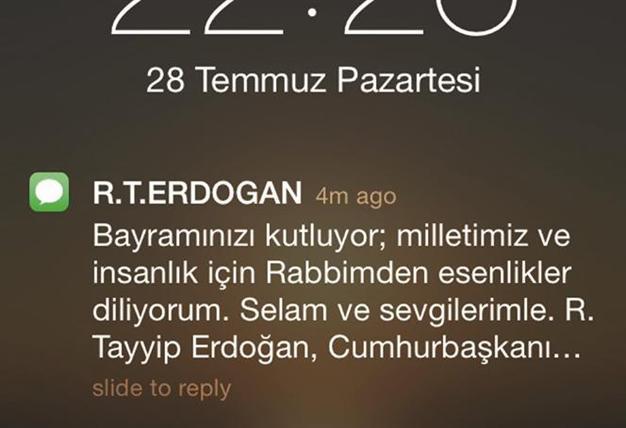Spam messages reign in Turkish presidential hopefuls’ campaigns
Ahmet CAN ISTANBUL
 Turkey’s presidential hopefuls have continued campaigning by sending text messages to mobile phone users.
Turkey’s presidential hopefuls have continued campaigning by sending text messages to mobile phone users. Thousands of text messages by Prime Minister Recep Tayyip Erdoğan and opposition candidate Ekmeleddin İhsanoğlu were sent to mobile phone users on the Muslim holy day of Eid al-Fitr or Laylat al-Qadr, with the aim of drawing their attention to next month’s presidential election. However, they were also seen as “spam” messages since they were sent without the user’s consent. While there are considerable punishments on spam messages in Europe and the United States, there is no such punishment in Turkey.
An article to regulate spam messages was listed in a draft on e-commerce, but since it was not ratified, spam texts are not yet deemed illegal under Turkish law.
Companies and political parties reach out to users by hiring private companies who specialized in “collective SMS sending.” Most companies charge around 2,500 Turkish Liras for 250,000 messages sent or 1,200 liras for 100,000 messages sent to users. Furthermore, companies can send messages to particular demographics. For example, a political party may only choose to send messages to women between the ages of 18 to 25 living in Istanbul.
Erdoğan, the leader of the ruling Justice and Development Party (AKP), is running against İhsanoğlu, who is backed by nine political parties, including the opposition Republican People’s Party (CHP) and Nationalist Movement Party (MHP).
The third candidate for the Aug. 10 elections, the Peoples’ Democratic Party (HDP) co-chair Selahattin Demirtaş, however, made it clear on July 28 that he was not sending out text messages during his tweet to celebrate Eid al-Fitr, or Ramazan Bayramı in Turkish.
“I wish everyone a nice bayram and a free tomorrow,” he wrote before adding: “The bayram messages by SMS sent out with my name do not belong to me.”
















